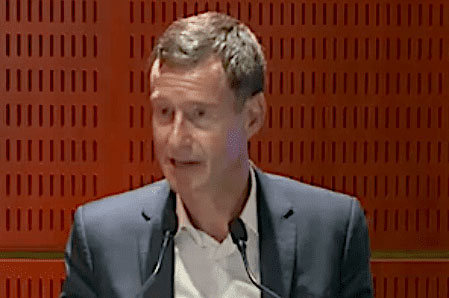 European Investment Fund CEO Alain Godard. Credit: VivaTech video
European Investment Fund CEO Alain Godard. Credit: VivaTech video
PARIS — The European Commission opened its program to connect investors and customers to space startups as part of the Cassini Space Investment Fund, which starting late this year is expected to generate 1 billion euros ($1.05 billion) in investment through 2027.
The Cassini Matchmaking effort, held at the VivaTech exhibition here, is designed to lead space startups through the maze of investment possibilities that have cropped up in Europe, and to train them in how to pitch their companies to investors.
Cassini is being coordinated by the European Investment Fund, which is teaming with venture-capital companies to finance, when fully operational, 60 space startups per year and to create 4-6 space-focused investment funds per year.
EU Commission: We plan to set aside one-third of connectivity constellation project for startups
The European Commission’s space policy leader, Thierry Breton, encouraged by the EU’s 27 member states, has made space-startup promotion a priority. It goes well beyond Cassini. The Commission intends to set aside — pending final negotiations — 30% of its multibillion-euro secure connectivity project to small- and midsize companies. Breton said here June 17 that the 30% mandate “is not totally official,” but the Commission has evoked this figure in the past.
“It’s billions of euros,” he said of the constellation project, still to be endorsed by European governments.
In addition, the Commission wants the Copernicus environment-monitory network to open its doors to constellations of smaller, less-expensive satellites to complement existing Copernicus sensors.
Breton said he also wants more startup involvement in the Galileo positioning, navigation and timing network.
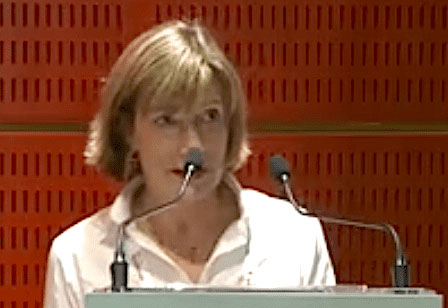 Geraldine Naja. Credit: VivaTech video
Geraldine Naja. Credit: VivaTech video
The 22-nation European Space Agency (ESA) is moving in the same direction. Geraldine Naja, ESA’s director for commercialization, said ESA’s proposed new Scale-Up program intends to fill the gap left where ESA’s successful incubation program — 1,200 startups have passed through ESA’s 25 Business Incubation Centers — leaves off.
Naja, reflecting a widely held view, said Europe is still lagging when it comes to helping companies scale up from incubation stage to the point at which they can attract 10 million euros or more.
ESA’s role will be a combination of matching businesses ready to scale with prospective investors, and also providing contracts for in-orbit demonstrations or other next-step developments for companies that have proved initial technology value and readiness.
European Investment Fund Chief Executive Alain Godard said Cassini “is a real game-changer” for startups in Europe, an effort whose scale is unprecedented.
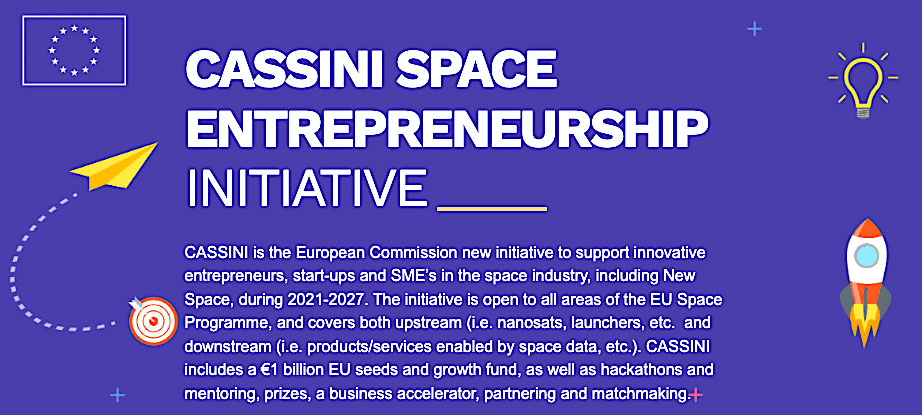 Credit: European Commission
Credit: European Commission
Silvia Costi of the Commission’s DG-Defis said the first call for Cassini projects drew more than 200 applications from startups for the four initial categories of Cassini investment. The four categories:
- Safety and security from (and in) space
- Improving access to space
- Infrastructure life-cycle support
- Space for human well-being, education and entertainment
The Commission selected 80 of these applications.
A jungle of financing possibilities for European space startups
In a panel discussion on the challenges of matching startups with corporate or financial investors, several officials noted that access to money is no longer the big problem in Europe.
Instead, the problem is partly the fact that non-space companies have little idea of what space technologies might bring to them. But it’s also that startups often lack the skills to tap into promising markets.
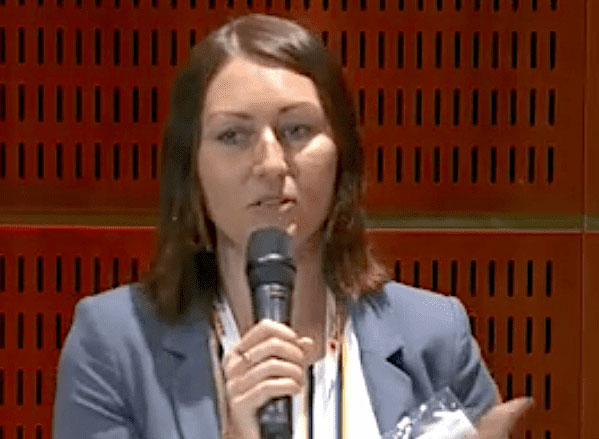 Justyna Redelkiewicz. Credit: VivaTech video
Justyna Redelkiewicz. Credit: VivaTech video
“Sometimes I get a call from a startup asking to connect with a corporate,” said Justyna Redelkiewicz, a market and downstream investment specialist at the European Union Agency for the Space Program (EUSPA).
“I ask: Which corporate? And they don’t know.”
Redelkiewicz said there are so many funding opportunities in Europe now that just about any serious startup will find public support. “But public funding will never replace the full cycle for you. At some point you have to be ready to go to the real market. The fact that you received public funding will not guarantee success forever.”
EUSPA’s startup focus is in supporting the Copernicus and Galileo programs. Redelkiewicz said it’s up to the startups to hone their pitches to target specific market niches.
“It’s really easy when you know what you want,” she said. “Now is the best time ever to be investing and working in space in Europe. There are so many separate activities that if you cannot find your way, it really means it’s not the place for you.”
Her last comment drew a rare applause from the audience consisting mainly of startups.
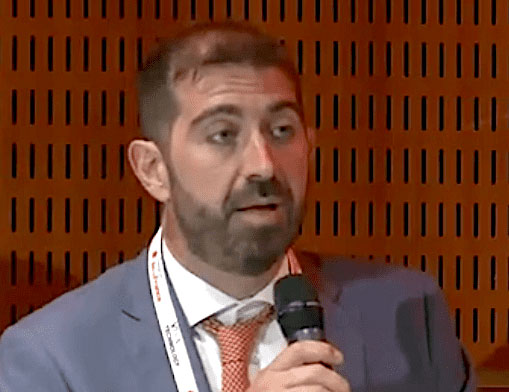 Gianluigi Baldesi. Credit: VivaTech video
Gianluigi Baldesi. Credit: VivaTech video
Gianluigi Baldesi, in ESA’s commercialization department, agreed that Europe now has “plenty of opportunities for funding. But he said companies understand what development phase they are in and what kind of funding they are seeking.
For companies that are past the start-up phase, ESA can provide external support, access to test facilities and ground stations as a service and technical advice to help companies reach the next phase of financial backing.
Read more from Space Intel Report.
